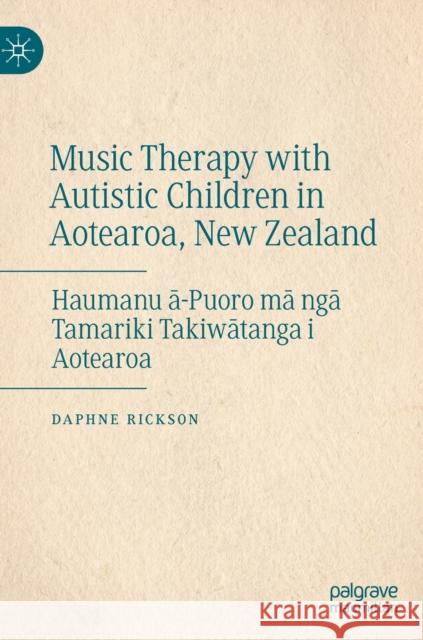Music Therapy with Autistic Children in Aotearoa, New Zealand: Haumanu ā-Puoro Mā Ngā Tamariki Takiwātanga I Aotearoa » książka
topmenu
Music Therapy with Autistic Children in Aotearoa, New Zealand: Haumanu ā-Puoro Mā Ngā Tamariki Takiwātanga I Aotearoa
ISBN-13: 9783031052323 / Angielski / Twarda / 2022
Music Therapy with Autistic Children in Aotearoa, New Zealand: Haumanu ā-Puoro Mā Ngā Tamariki Takiwātanga I Aotearoa
ISBN-13: 9783031052323 / Angielski / Twarda / 2022
cena 508,15 zł
(netto: 483,95 VAT: 5%)
Najniższa cena z 30 dni: 501,19 zł
(netto: 483,95 VAT: 5%)
Najniższa cena z 30 dni: 501,19 zł
Termin realizacji zamówienia:
ok. 20 dni roboczych.
ok. 20 dni roboczych.
Darmowa dostawa!
In this unique text, ten cases of music therapy with autistic children (tamariki takiwātanga) are critiqued through the eyes of family members and other autism experts. Rickson uses her wealth of experience to contextualise their rich observations in a thorough review of research and practice literature, to illustrate the ways music therapists engage autistic children in the music therapy process, highlight the various ways music therapy can support their health and well-being, and demonstrate how music therapy processes align with good practice as outlined in the New Zealand Autism Spectrum Disorder Guideline.











